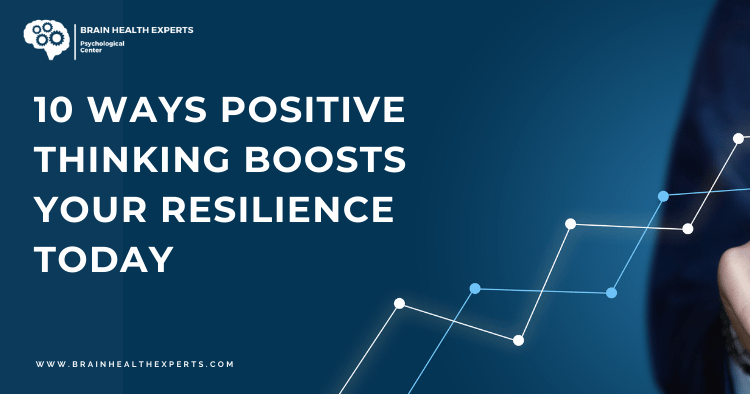Table of Contents
Way 1: Embrace Challenges
Embracing challenges helps you grow and become more resilient.
Way 2: Maintain a Positive Attitude
A positive attitude can enhance your ability to cope with adversity.
Way 3: Cultivate Gratitude
Practicing gratitude can shift your focus from negative to positive.
Way 4: Develop a Support System
Having a strong support system can help you bounce back from difficulties.
Way 5: Practice Self-Compassion
Being kind to yourself during tough times can boost your resilience.
Way 6: Set Realistic Goals
Setting achievable goals can provide you with direction and motivation.
Way 7: Learn from Failure
Viewing failure as a learning opportunity can enhance your resilience.
Way 8: Stay Physically Active
Regular physical activity is linked to better mental health and resilience.
Way 9: Focus on Solutions
Focusing on solutions rather than problems can foster a positive mindset.
Way 10: Keep a Positive Journal
Writing down positive experiences can help reinforce a positive outlook.
Table of Contents
- Understanding Resilience and Positive Thinking
- 1. Shifts Your Perspective
- 2. Enhances Problem-Solving Skills
- 3. Builds Stronger Relationships
- 4. Increases Emotional Intelligence
- 5. Promotes Better Physical Health
- 6. Encourages a Growth Mindset
- 7. Reduces Stress Levels
- 8. Fosters Gratitude
- 9. Inspires Action and Motivation
- 10. Creates a Supportive Environment
- Conclusion
Understanding Resilience and Positive Thinking
Resilience is the ability to bounce back from adversity, adapt to change, and keep going in the face of challenges. Positive thinking, on the other hand, refers to a mental attitude that focuses on the bright side of life and expects positive outcomes. Together, these concepts create a powerful synergy that can significantly enhance your ability to navigate life’s ups and downs.
“In the midst of chaos, there is also opportunity.” – Sun Tzu
In this article, we will explore 10 ways positive thinking can boost your resilience, helping you lead a more fulfilling and empowered life.
1. Shifts Your Perspective
Positive thinking helps you view challenges as opportunities rather than obstacles. When you maintain an optimistic outlook, you’re more likely to see the silver lining in tough situations. This shift in perspective allows you to approach problems with a solution-oriented mindset, making it easier to cope with setbacks.
Example: Instead of thinking, “I failed my exam,” you might reframe it as, “I learned what I need to study more.” This change in narrative not only reduces feelings of defeat but also sets the stage for future success.
“Your perspective on adversity is not just about survival; it’s about how you thrive.”
2. Enhances Problem-Solving Skills
A positive mindset empowers you to think creatively and critically when faced with challenges. When you’re focused on the positives, your brain is more open to exploring different solutions rather than getting bogged down by negativity.
Research from the American Psychological Association confirms that optimism enhances cognitive flexibility, which aids in effective problem-solving. This means that when you approach a problem with a positive outlook, you’re more likely to brainstorm multiple solutions and navigate through difficulties with ease.
3. Builds Stronger Relationships
Positive thinkers tend to attract other positive individuals. When you exude optimism, others are drawn to your energy and are more likely to support you in tough times. Strong relationships provide a safety net, allowing you to lean on others when you need help, further enhancing your resilience.
Visual Element: Here’s a simple table showing how positive thinking affects relationships:
| Positive Thinking Impact | Effect on Relationships |
|---|---|
| Increases empathy | Strengthens bonds |
| Fosters open communication | Reduces misunderstandings |
| Promotes support | Encourages collaboration |
“Your network is your net worth.” – Porter Gale
4. Increases Emotional Intelligence
Emotional intelligence (EI) refers to the ability to understand and manage your emotions as well as the emotions of others. A positive mindset contributes to higher EI, making you more adept at handling stress and conflict.
With enhanced emotional intelligence, you’ll be more resilient since you can navigate emotional landscapes more effectively, whether that means calming yourself during a crisis or providing support to a friend in need. For insights on emotional intelligence, check out Understanding Emotional Intelligence: Key Insights & Benefits.
5. Promotes Better Physical Health
Positive thinking is not just a mental exercise; it has real physical benefits, too. Research indicates that optimists enjoy better cardiovascular health, lower blood pressure, and even longer lifespans.
When your body is healthy, you are better equipped to handle stress and recover from setbacks, further bolstering your resilience. Check out this Harvard Health article for more insights on the link between positivity and health.
“Health is not just about what you’re eating. It’s also about what you’re thinking.”
6. Encourages a Growth Mindset
A growth mindset—the belief that abilities and intelligence can be developed through dedication and hard work—aligns beautifully with positive thinking. When you embrace challenges and view failures as learning opportunities, you cultivate resilience.
Example: If you encounter a setback at work, instead of feeling defeated, you might think, “What can I learn from this experience?” This approach not only strengthens your resilience but also propels you toward personal and professional growth. For more on personal growth, visit 10 Ways Positive Thinking Fuels Personal Growth Journey.
7. Reduces Stress Levels
Positive thinking is a natural antidote to stress. By focusing on the positive aspects of your life, you can reduce the impact of stressors. Techniques such as gratitude journaling or mindfulness meditation can enhance your positive thinking and further reduce stress levels.
A study published in the Journal of Personality and Social Psychology indicated that individuals who maintain a positive outlook experience lower levels of stress and anxiety. This reduction in stress not only fosters resilience but also improves overall well-being. For effective stress management techniques, see 10 Proven Stress Management Techniques for Daily Relief.
“Stress is caused by being ‘here’ but wanting to be ‘there’.” – Eckhart Tolle
8. Fosters Gratitude
Practicing gratitude is a powerful way to enhance positive thinking. When you regularly acknowledge the good in your life, you shift your focus from what’s lacking to what you have. This shift can significantly bolster your resilience by reminding you of your strengths and resources during tough times.
Visual Element: Here’s a simple gratitude exercise you can try:
Sure! Please provide the Markdown content that you would like me to convert to HTML.| Day of the Week | Gratitude Focus |
|---|---|
| Monday | A supportive friend |
| Tuesday | A recent accomplishment |
| Wednesday | A beautiful memory |
| Thursday | A skill you’ve developed |
| Friday | A place you love |
| Saturday | A lesson learned from a challenge |





